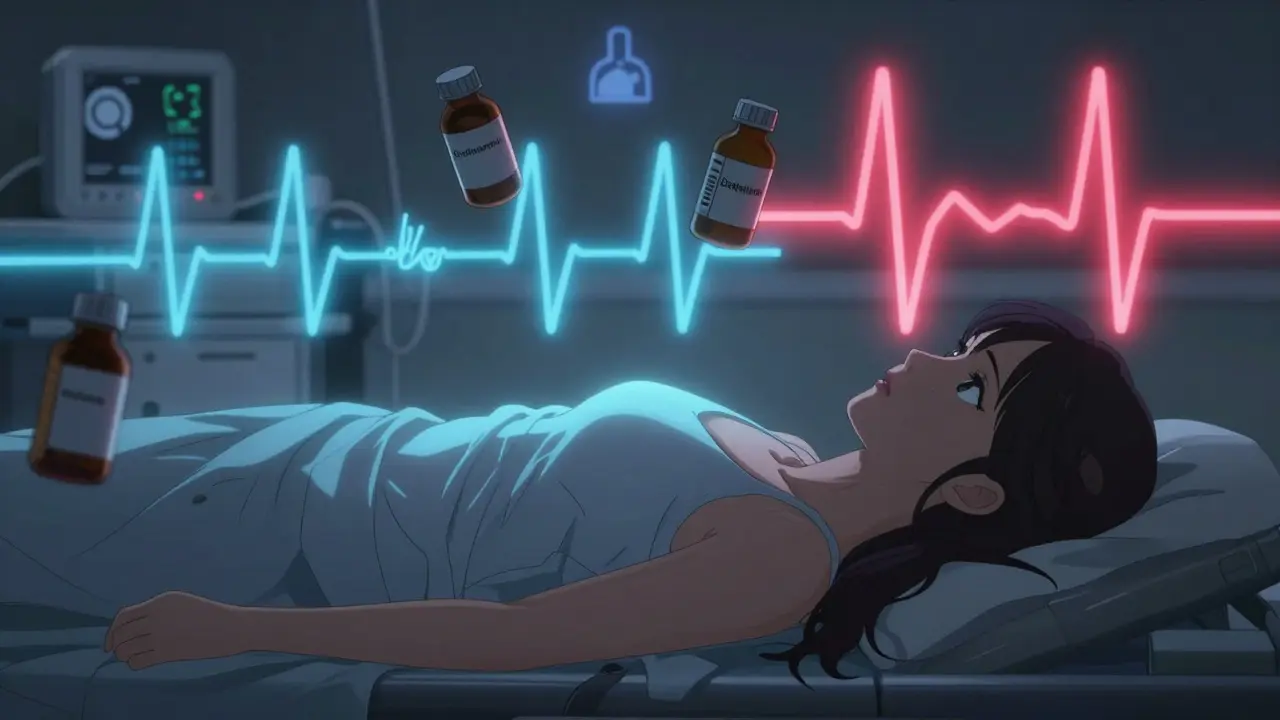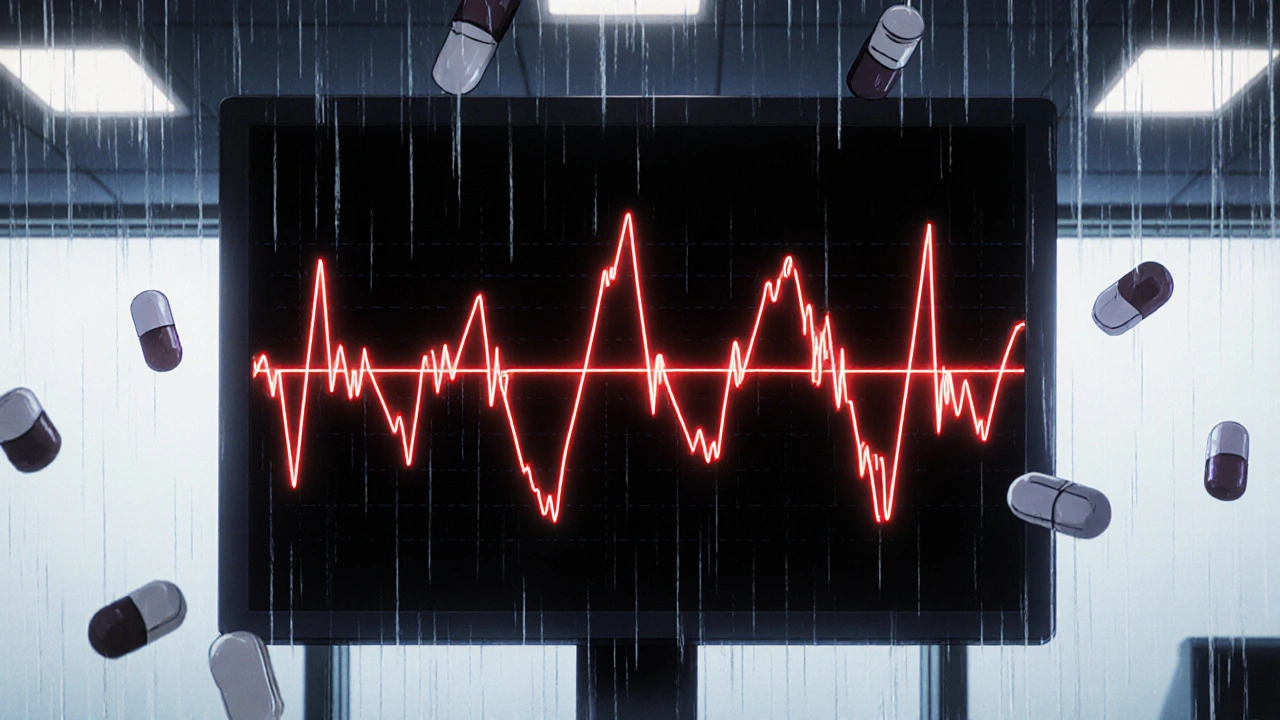Drug-Induced Arrhythmia: Causes, Common Medications, and What to Do
When a medication messes with your heart’s rhythm, it’s called drug-induced arrhythmia, an abnormal heartbeat triggered by a drug, not an underlying heart disease. Also known as pharmacological arrhythmia, it’s not rare—especially with drugs that affect electrolytes, nerve signals, or heart muscle function. This isn’t just about old-school drugs; even modern treatments like antibiotics, antidepressants, and weight-loss meds can do it. You might not feel anything at first, but skipped beats, fluttering in your chest, dizziness, or sudden fatigue could be warning signs.
One of the biggest red flags is QT prolongation, a delay in the heart’s electrical reset that can lead to dangerous rhythms like torsades de pointes. Drugs like certain antibiotics (azithromycin), antifungals, antipsychotics (abilify), and even some stomach meds can stretch out that QT interval. Then there’s antiarrhythmics, medications meant to fix heart rhythms, but which can sometimes cause them instead. It’s ironic, but true—your heart medicine can become your heart risk. And it’s not just about the drug itself. Things like dehydration, low potassium, kidney issues, or mixing multiple meds can turn a low-risk drug into a high-risk one.
People on long-term meds for high blood pressure, depression, or infections are most at risk. Seniors are especially vulnerable because their bodies process drugs slower and often take multiple pills at once. But it’s not just older adults—anyone on a new prescription should pay attention. If you start feeling off after starting a new drug, don’t assume it’s just side effects. A simple EKG can catch QT prolongation before it turns serious.
What you’ll find here aren’t just warnings. You’ll see real cases where common meds triggered rhythm problems, how doctors spot the early signs, and what you can do to protect yourself without ditching your treatment. Some posts dive into how a blood pressure pill like enalapril can affect electrolytes. Others show how antidepressants like SSRIs might quietly mess with your heart’s timing. There’s even a look at how antibiotics can set off a chain reaction that ends in arrhythmia. These aren’t theoretical risks—they’re documented, measurable, and preventable.
You don’t need to panic. But you do need to be informed. The right questions, the right tests, and the right communication with your doctor can keep your heart steady—even while you’re on the meds you need.
QT Prolongation and Sudden Cardiac Death: What Medications Really Risk and Who’s Most Vulnerable
QT prolongation from medications can lead to sudden cardiac death, but risk isn't the same for everyone. Learn which drugs are most dangerous, who's most vulnerable, and how to prevent tragedy.
Torsades de Pointes from QT-Prolonging Medications: How to Recognize and Prevent This Life-Threatening Reaction
Torsades de Pointes is a life-threatening heart rhythm triggered by common medications that prolong the QT interval. Learn how to recognize the warning signs, which drugs are most dangerous, and how to prevent this preventable emergency.


